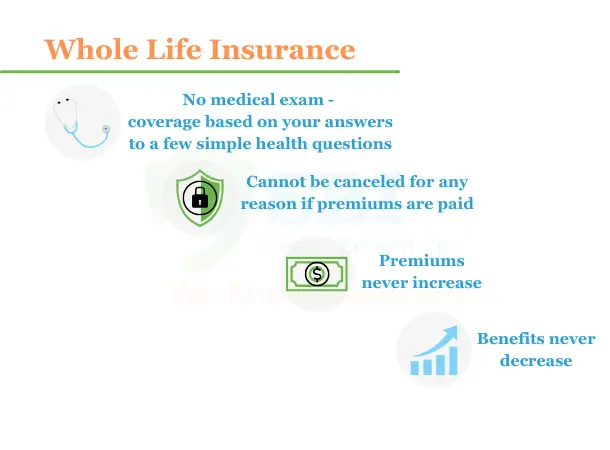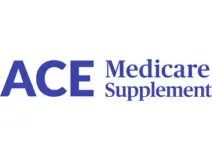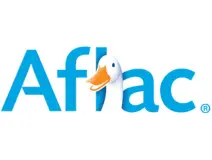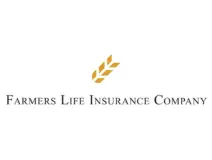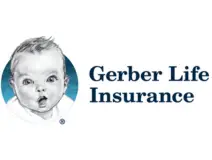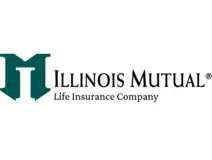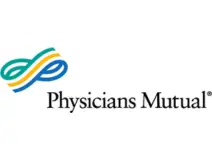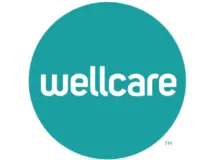More Than Medicare
Whether you need life insurance, annuities, dental or vision coverage, cancer insurance, or assistance with bills not covered by regular insurance, we are here to help.
Our goal is to provide you with peace of mind during difficult times.
Making the right, informed decisions is crucial, as sometimes there are no second chances.
Annuities
There’s no better time than today to plan for a more confident tomorrow. Yet both the marketplace and life are filled with uncertainty. With many options available for protecting your assets and maximizing your savings, it can be challenging to determine which strategies best meet your needs.
- A straightforward way to safely grow your savings on a tax-deferred basis
- A guaranteed fixed rate of interest over a pre-determined period
- Protection from market risk
- Options for accessing a portion of your funds should you need them to satisfy required minimum distributions (RMDs) or other financial obligations
- Full access to your account for unexpected health care costs, namely, qualifying nursing care, or in the event of terminal illness
- The option of turning your annuity into guaranteed payments for life
- The ability to provide a legacy for loved ones through a death benefit
Designed for real people and real life, these simple-to-understand annuities can achieve your unique financial goals while making it easier for you to adapt as your needs change and your life evolves.

Cancer Insurance
Why Cancer Insurance?
According to the American Cancer Society:
- In the United States, men have about a 1-in-2 lifetime risk of developing cancer; for women, the risk is a little more than 1-in-3.*
- It is projected that, on an annual basis, over 1.8 million new cancer cases will be diagnosed.*
As advances in cancer treatment continue, more and more people will survive:
- Approximately 16.9 million Americans with a history of cancer were alive in 2019.*
- The five-year relative survival rate for all cancers diagnosed between 2009 – 2015 is 69%, up from 55% in 1987 – 1989.*
- The National Institutes of Health estimated the overall costs for cancer in the year 2020 at $206 billion.
Although health insurance can help offset the costs of cancer treatment, you still may have to cover deductibles and copayments on your own.
Additionally, cancer treatment can cause out-of-pocket expenses that aren’t covered by traditional health insurance:
- Travel
- Food
- Lodging
- Childcare
- Household help
*American Cancer Society – Cancer Facts and Figures 2020
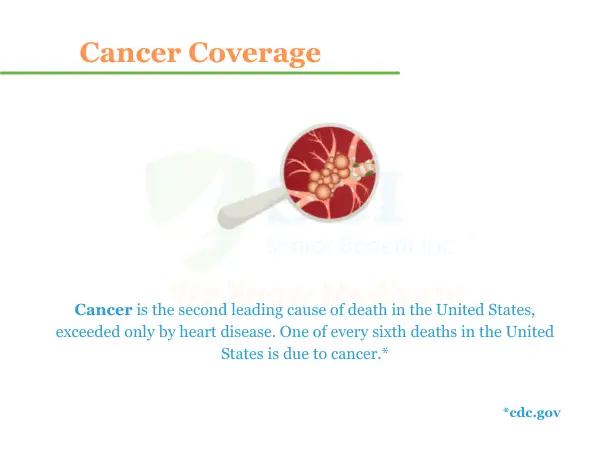
Dental, Vision, and Hearing Insurance
Why Dental, Vision, and Hearing Insurance?
Original Medicare (Parts A nd B) generally does not cover dental, vision, or hearing services.
- Increased need for preventative care: As people age, they often require more frequent dental, vision, and hearing exams and treatments.
- Health connections: Dental health is closely linked to overall health, and issues with vision and hearing can significantly impact daily life and well-being.
- Cost considerations: Dental, vision, and hearing procedures can be expensive, so having some form of coverage is beneficial.
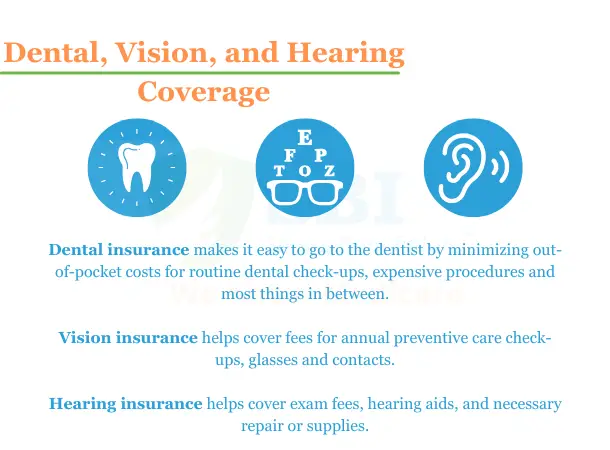
Heart Attack & Stroke Insurance
Why Heart Attack & Stroke Insurance?
According to the CDC
- In the United States, someone has a heart attack every 40 seconds.*
- Every year, about 805,000 people in the United States have a heart attack. Of these, 605,000 are first heart attacks, and 200,000 happen to those who have had a previous heart attack.*
- About 1 in 5 heart attacks are silent – the damage is done, but the person is not aware of it.*
- Every 40 seconds, someone in the United States has a stroke. Every 3 minutes and 11 seconds, someone dies of a stroke.*
- Every year, more than 795,000 people in the United States have a stroke. Of these, 610,000 are first or new strokes, and 185,000 happen to those who have had a previous stroke.*
- About 87% of all strokes are ischemic strokes, in which blood flow to the brain is blocked.*
According to the American Heart Association:
- On average, someone in the US dies of CVD every 34 seconds** (2580 US deaths from CVD each day)
- On average, someone in the US dies of a stroke every 3 minutes and 11 seconds** (453 US deaths from stroke each day)
- Stroke deaths in the United States increased by 28.7% between 2012 and 2022**
*CDC.org
**American Heart Association
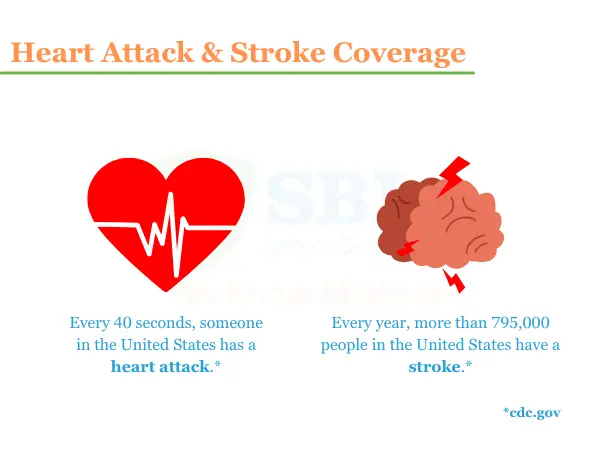
Whole Life Insurance
Whole life insurance is a type of permanent life insurance that provides lifelong coverage and accumulates a cash value. It is intended to provide a death benefit to your beneficiaries while also including a savings component that grows over time. Unlike term life insurance, which is only valid for a specified period, whole life policies remain in effect for your entire life, provided that you continue to pay the premiums.
Key features of whole life insurance:
- Lifelong Coverage: The policy remains in effect for your entire life, as long as you continue to pay the premiums.
- Fixed Premiums: The premiums are generally fixed and do not increase with age.
- Guaranteed Death Benefit: A guaranteed death benefit is paid to your beneficiaries upon your death.
